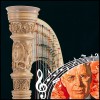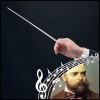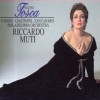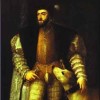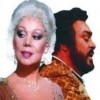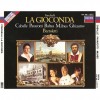歌剧剧本
Der Rosenkavalier (Op. 59) (The Knight of the Rose) is a comic opera in three acts by Richard Strauss to an original German libretto by Hugo von Hofmannsthal. It is loosely adapted from the novel Les amours du chevalier de Faublas by Louvet de Couvrai and Molière’s comedy Monsieur de Pourceaugnac. It was first performed at the Königliches Opernhaus in Dresden on 26 January 1911 under the direction of Max Reinhardt. Until the premiere, the working title was Ochs von Lerchenau. (The choice of the name Ochs is not accidental, for in German Ochs is translated as ox, which depicts the character of the Baron throughout the opera.)
The opera has four main characters: the aristocratic Marschallin, her very young lover Octavian Rofrano, her coarse, skirt-chasing country cousin Baron Ochs, and his young prospective fiancée Sophie, the lovely daughter of a rich Viennese bourgeois. Baron Ochs, having arranged with Sophie's father Faninal to combine his noble rank with Faninal's money by marrying Sophie, asks the Marschallin to suggest an appropriate young man to be his Knight of the Rose, who will present a silver rose to Sophie on his behalf as a traditional symbol of courtship. She recommends Octavian. When Octavian delivers the rose, he and Sophie fall in love on sight, and must figure out how to prevent Baron Ochs from marrying Sophie. They accomplish this in a comedy of errors that is smoothed over with the help of the Marschallin.
There are many recordings of the opera, and it is regularly performed.
Summary
Time: 1740s, in the first years of the reign of Empress Maria Thérèse.
Place: Vienna.
Act 1
The Marschallin's bedroom
Princess Marie Therese von Werdenberg (the Marschallin, the title given to a Field Marshal's wife) and her much younger lover, Count Octavian Rofrano exchange vows of love ("Wie du warst! Wie du bist"). To avoid scandal, he hides when a small black boy, Mohammed, brings the Marschallin's breakfast. During breakfast loud voices are heard in the garderobe and not the main door; the Marschallin believes that it is her husband who has returned unexpectedly from a hunting trip and has Octavian hide behind the bed. He returns disguised as a chambermaid, "Mariandel" ("Befehl'n fürstli' Gnad'n, i bin halt noch nit recht..."), who tries to sneak away through the garderobe, only to find that the Marschallin's country cousin Baron Ochs auf Lerchenau has unexpectedly entered through that same door to discuss his engagement to Sophie ("Selbsverständlich empfängt mir Ihro Gnaden"), the daughter of a wealthy merchant who has been recently elevated to nobility by the Empress. After boorishly describing his personal pastime of chasing skirts, and demonstrating it on the disguised Octavian, he asks the Marschallin which cavalier he should select to deliver the traditional silver engagement rose to Sophie. She recommends Octavian, and when Ochs sees the young count's picture, he notices the similarities in the count's face to the chambermaid "Mariandel's" and assumes that she is Octavian's illegitimate sister and he even boasts that nobility should be served by nobility, which leads to a confession that he has an illegitimate son working for him. The coarse Ochs propositions the "chambermaid," and, in response, Octavian pretends to be the country maid and leaves at the first chance he gets.
The room then fills with supplicants to the Princess ("Drei arme adelige Waisen"). An Italian tenor sent by the Spanish Ambassador serenades the Marschallin ("Di rigori armato"), while Ochs works out the marriage contract with the Marschallin's notary. Two Italian intriguers, Valzacchi and Annina, try to sell the Princess the latest scandal sheets, and offer their surveillance services to Ochs. Rudely interrupting the tenor's song, Ochs tells the notary to demand a dower from Sophie's family; to no avail, the notary attempts to explain that such is impossible under the law (Ochs confuses dower with dowry). Ochs leaves in fury, but not before employing the two Italians. Amidst all the activity, the Marschallin remarks to her hairdresser: "My dear Hippolyte, today you have made me look like an old woman." ("Mein lieber Hippolyte").
When all have left, the Marschallin, reminded of her own early marriage by Ochs's young bride, sadly ponders her fleeting youth and the fickleness of men ("Da geht er hin..."). By this time Octavian returns (in men's clothes) ("Ach, du bist wieder da"), she has realized that one day he will leave her ("Die Zeit, die ist ein sonderbar Ding"). She tells him so, and despite his fervent vows of love, she knows his love will not last. He is stunned by her mood change and abruptly leaves after the Marschallin asks him to ride beside her coach. She suddenly realizes that she has forgotten to kiss him goodbye, and sends some footmen after him, but it is too late, he is gone. The Marschallin summons her page to take the silver rose to Octavian to deliver to Sophie. After Mohammed departs, Marie Therese stares pensively into her hand mirror as the curtain falls.
Act 2
The von Faninals' home
Herr von Faninal and Sophie await the arrival of the Rosenkavalier (Knight of the Rose), Octavian ("Ein ernster Tag, ein grosser Tag!"). Following tradition, Faninal departs before the Knight appears. Sophie frets over her approaching marriage with a man she has never met as her duenna, Marianne, reports on the approach of Octavian ("In dieser feierlichen Stunde der Prüfung"). Octavian arrives with great pomp, dressed all in silver. He presents the silver rose to Sophie in an elaborate ceremony. Immediately, the two young people are attracted to each other and they sing a beautiful duet ("Mir ist die Ehre widerfahren...").
During a chaperoned conversation, Sophie and Octavian begin to fall in love (in this conversation she reveals Octavian's full name: Octavian Maria Ehrenreich Bonaventura Fernand Hyacinth Rofrano, aka Quinquin in intimacy). Ochs enters with Sophie's father ("Jetzt aber kommt mein Herr Zukünftiger"). The Baron speaks familiarly with Octavian (though they have never officially met), examines Sophie like chattel and generally behaves like a cad, also revealing that Octavian "has" illegitimate family. Ochs's servants begin to chase the maids, sending the household into an uproar. Sophie starts to weep, and Octavian promises to help her ("Mit Ihren Augen voll Tränen"). He embraces her, but they are discovered by Ochs's Italian spies, who report to him. Ochs is only amused, considering the much younger Octavian no threat, but Octavian's temper is raised enough to challenge the bull-headed Baron to a duel. The Baron receives a slight wound in the arm in the fracas and cries bloody murder. As a doctor is sent for, Sophie tells her father she never will marry the Baron, but her father insists she will and threatens to send her to a convent. Octavian is thrown out, and Sophie is sent to her room. As Ochs is left alone on the divan with his wounded arm in a sling, he begins to raise his spirits with a glass of port. Annina enters with a letter for Ochs from "Mariandel" asking to meet him for a tryst. The now recovered and drunk Ochs, in anticipation of his imminent meeting, dances around the stage to one of the opera's many ironic and wry waltzes, refusing to tip Annina, who silently swears revenge ("Da lieg' ich!").
Act 3
A private room in an inn
Valzacchi and Annina have switched alliances and are now helping Octavian prepare a trap for the Baron.
Ochs and "Mariandel" arrive for a rendez-vous. Ochs tries to seduce the seemingly willing chambermaid, though he is disturbed by her resemblance to Octavian. The guilt-ridden baron catches glimpses of the heads of Octavian's conspirators as they pop out of secret doors. A woman (Annina in disguise) rushes in claiming that Ochs is her husband and the father of her children, all of whom rush in crying "Papa! Papa!" As the confusion grows and the police arrives, to avoid a scandal, Ochs claims that "Mariandel" is his fiancée Sophie. Octavian lets the Police Commissioner in on the trick, and the Officer plays along. In the meantime the Baron tries to pull his noble rank to no avail, claiming that "Mariandel" is under his protection. Furious to be enmeshed in the scandal, Faninal arrives and sends for Sophie to clear his and his daughter's name. Sophie arrives and asks the Baron to leave her alone. Just as Ochs is completely befuddled and embarrassed, the Marschallin enters. The Police officer recognizes her, having previously served under her husband. The Princess sends the Police and all the others away. The Baron still tries to claim Sophie for himself after having realized the truth about the Marschallin and Octavian/Mariandel's relationship, even attempting to blackmail the Princess, but is ordered to leave gracefully, salvaging what is left of his dignity. Ochs finally leaves, pursued by various bill collectors.
The Marschallin, Sophie, and Octavian are left alone. The Marschallin recognizes that the day she so feared has come, as Octavian hesitates between the two women (Trio: Marie Theres'! / Hab' mir's gelobt). In the emotional climax of the opera, the Marschallin gracefully releases Octavian, encouraging him to follow his heart and love Sophie. She then withdraws elegantly to the next room to talk with Faninal. As soon as she is gone, Sophie and Octavian run to each other's arms. Faninal and the Marschallin return to find the lovers locked in an embrace. After a few bittersweet glances to her lost lover, the Princess departs with Faninal. Sophie and Octavian follow after another brief but ecstatic love duet (Ist ein Traum / Spür' nur dich), and the opera ends with little Mohammed running in to retrieve Sophie's dropped handkerchief, and racing out again after the departing nobility.






